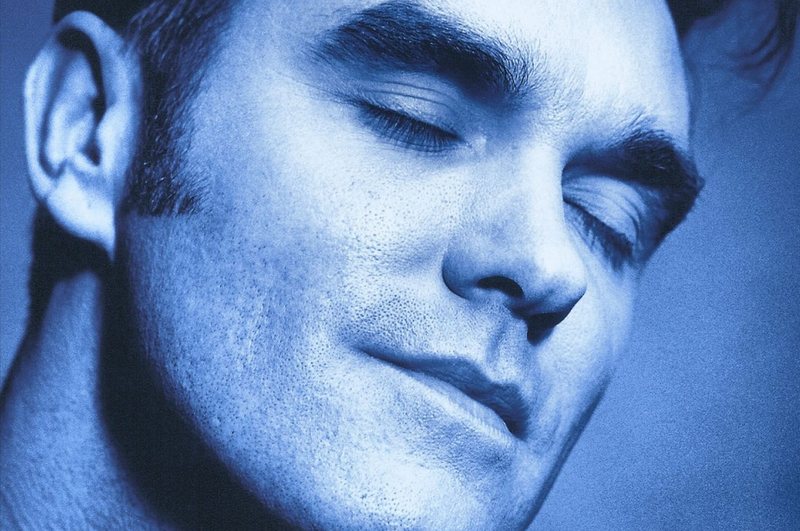Morrissey Book Club: Why Reading This Memoir Was Like Running The New York City Half Marathon

Last Thursday, we reached our third and final destination in Morrissey’s Autobiography. As the leader of the de facto Morrissey Book Club, I probably should have spent the weekend reflecting, spitballing and PowerPointing in advance of this benediction. I did none of those things. Instead, I ran a half marathon while listening to a playlist created by Soundcheck listeners.
The New York City Half was the longest race I've completed in my short time as a recreational runner. I was happy with my performance, except for one thing. After the race, I spent about 25 minutes trying to find my wife in the freezing cold. (My phone’s battery died at mile 12.) A day later, as I sit here with feet, legs and shoulders on the mend, I’m able to draw a few parallels between the Morrissey memoir and my recent experience running 13.1 miles (or 21.08 km for readers of the UK edition).
Parallel 1: I knew what I was getting into.
A week ago, I wasn’t sure that I could actually run 13 miles, so I spent a Sunday afternoon running from my neighborhood, Sunset Park, to Williamsburg and back. When the book was published last fall, I’d read enough of the reaction to prepare for two major challenges: 1) This thing needed a stronger editor; and 2) The 50-page rehash of the legal fight over Smiths royalties is just awful. If you can look past these two essentially fatal flaws, the book is quite amusing. The prose is, uh, a little dramatic, but to all the haters: This is a Morrissey book.

Parallel 2: I lost some people.
After crossing the finish line, I was able to revive my dead iPhone to send one very confusing text message to my wife. It diverted her from our agreed-upon meeting spot, and we each wandered around for the next half hour in a communications blackout because I was too shy to ask a fellow runner for cellular help. Also, I didn’t have change for a pay phone. (Because it's The Year 2014.)
While reading Autobiography, I also lost Katie Bishop and Mike Katzif, two Soundcheck producers who, to stretch the analogy, essentially traveled to the Financial District on a cold Sunday morning to watch me read this book. Three weeks ago, they were excited when I handed them copies to read. They gave it their best shot, but Katie and Mike both put the memoir down. In a very Morrissey-esque move, I publicly shamed them in this post.
Parallel 3: Unexpected stuff helped me get through to the end.
After we both won entry into the Half via a lottery, Katie and I asked Soundcheck listeners to help us build a running mix to replace ones that we’d each been using for many, many months. The result: a shiny new playlist that is eclectic, energetic and, perhaps most important, 10 hours long. If you use music for running or working out, I highly recommend listening to it (which will require a Spotify account). The clever, counterintuitive picks kept me smiling -- not to mention running -- until the final mile, when my GPS app basically killed my phone.
Unexpected moments are the best part of Autobiography, too. Sure, Morrissey tackles the typical memoir subjects -- hometown, family, upbringing, good moments, bad moments, people you love, people you hate -- but the singer is at his best when he goes off on a tangent: his TV diet as a child, the bands he loved as a teenager, and his love-hate relationship with Los Angeles. Of course, one such tangent -- the score-settling with Smiths bassist Mike Joyce that starts at page 299 -- has ruined the book for many readers.
To be honest, I skimmed it, and moved on. The final 100 pages of the book are great: a city by city tour diary, with the modern-day Morrissey seeming, gasp, fairly normal. He grapples with age (me too!), a thickening middle (he’s just like me!) and life on tour (not like me at all).
During the half marathon yesterday, I also hit a wall -- the running equivalent of reading about the Smiths on trial. The final mile was rough -- my legs were shot, my iPhone was dead and I had no music. Near the end, there's a claustrophobic and dark stretch in a tunnel, and I couldn't stop thinking about this scene from 28 Days Later:
But no rats or zombies came after us. We finished -- the race and the book -- and lived to tell about it.
By the way: Tomorrow, I’m conducting an “exit interview” podcast about Autobiography with Smiths biographer Tony Fletcher (There Is A Light That Will Never Go Out: The Enduring Saga of the Smiths). If you’ve read the book -- with or without the Morrissey Book Club as your guide, give me your reactions or questions, and I’ll work them into my conversation with Tony.
